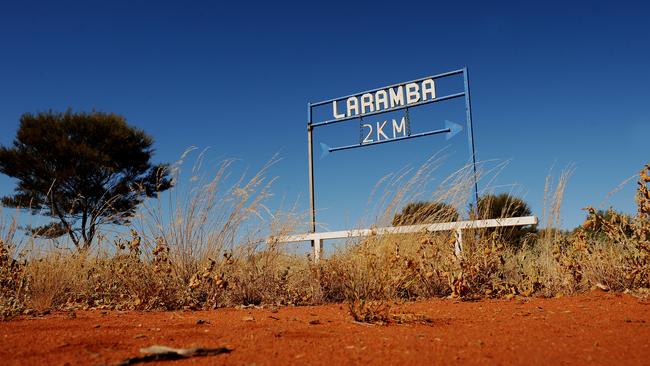Remote residents’ drinking water dispute with government landlord headed for the Supreme Court
RESIDENTS of a remote NT community whose water supply is contaminated will have their case against the Territory Government heard in the Supreme Court

Police & Courts
Don't miss out on the headlines from Police & Courts. Followed categories will be added to My News.
RESIDENTS of a remote NT community whose water supply is contaminated with uranium will have their case against the Territory Government heard in the Supreme Court.
In July, the NT Civil and Administrative Tribunal rejected a bid to force the government to fix the problem and provide compensation to community members in Laramba in Central Australia.
MORE COURT NEWS
NT police officer Zach Rolfe to face trial in Supreme Court for alleged murder of Kumanjayi Walker
Man jailed for attempted rape of teenage backpacker on Smith St
Man convicted of raping stripper with beer bottle was a ‘larrikin who made a mistake’, court hears
Despite the fact the uranium levels in the town’s tap water are “substantially in excess” of the level considered safe under Australian Drinking Water Guidelines, tribunal member Mark O’Reilly ruled the government, as landlord, was not responsible.
“In my view, the landlord’s obligation for habitability is limited to the premises themselves,” he said.
“If the water supply in Central Australia simply dried up completely it would not be the responsibility of the various landlords of Alice Springs to provide a remedy or compensation.”
But the residents appealed that ruling and this month tribunal president Richard Bruxner referred the case to the Supreme Court.
Mr Bruxner said while the parties agreed the levels of uranium in the water “substantially exceed” the guidelines, the question of whether that made it “unsafe” for drinking was still in dispute.
He asked the court to rule on a narrower question of whether the terms of the Residential Tenancies Act required Territory landlords to ensure water supplied to their properties was safe to drink.
The decision follows an earlier ruling in the Supreme Court in which Justice Jenny Blokland found the definition of “habitable” under the act should have included “an overall assessment of the humaneness, suitability and reasonable comfort of the premises”.
Lawyers for the government and the residents were at odds over whether Justice Blokland’s ruling applied to Laramba but Mr Bruxner did not make a finding either way.
“I confess some difficulty in seeing the direct relevance of (Justice Blokland’s ruling) in this proceeding,” he said.
LIMITED TIME: New NT News subscription offer: $1 a week for the first 12 weeks
“However, I did not ask the (residents’) counsel to develop the submission and it would be inappropriate in the circumstances to make any further comment for the time being.”
Mr Bruxner noted the Supreme Court’s ruling would only finalise the matter if it sided with the government but a ruling in favour of the residents would have “important ramifications” for all tenancies under the act.



